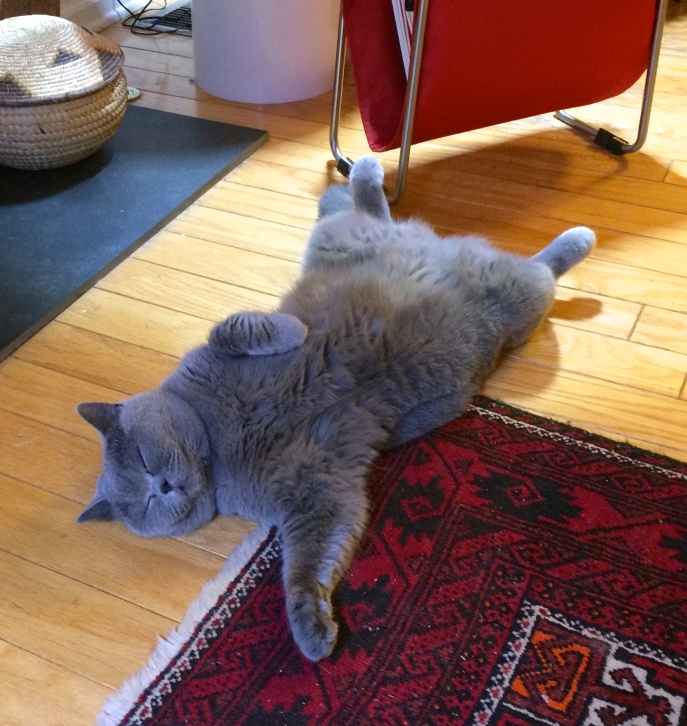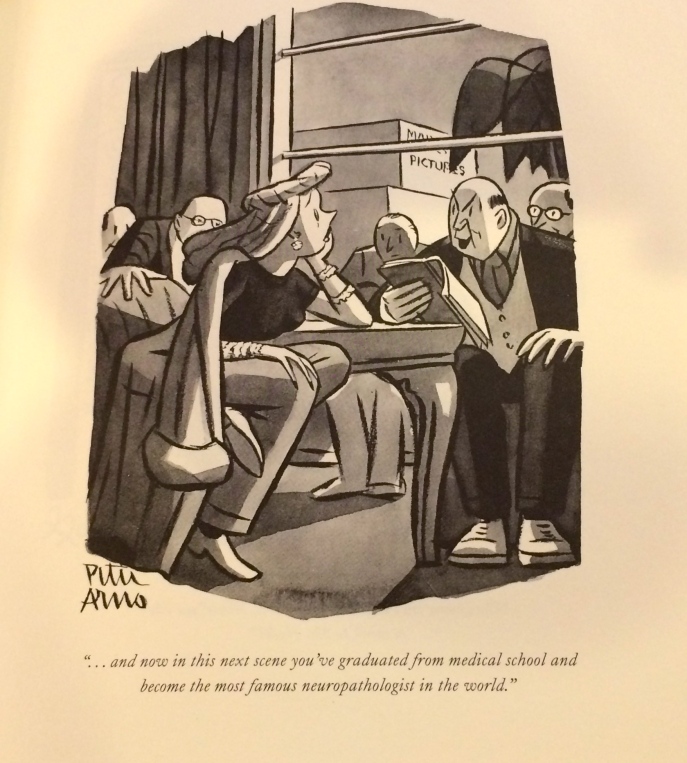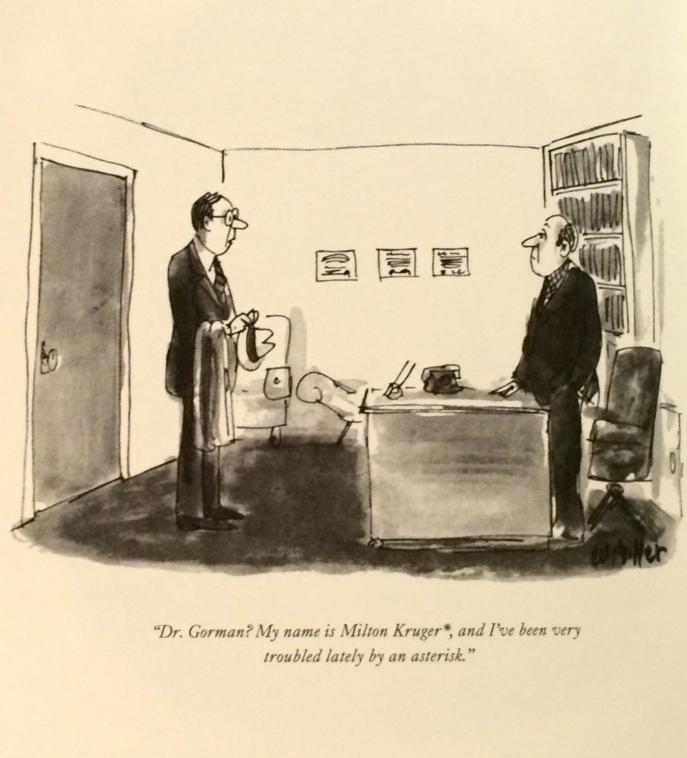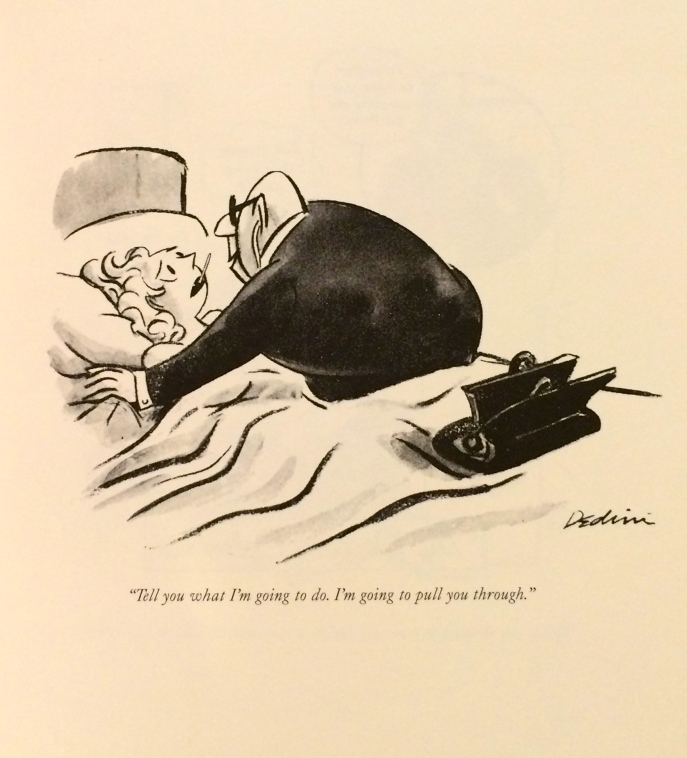[Americans as old as I am, or older, will all have some personal memory of where they were and what they were doing 73 years ago today. The rest of you may wonder how anyone could remember that far back.
We remember because of the sudden and unforeseen events occurring on that day; they triggered our country’s unprepared entry into World War II — and thereby changed all our lives in so many ways it would be hard to forget them, even if we were still just children playing in the backyard that Sunday afternoon.
Those of you who’ve been following TGOB since last year may recall I first ran this piece on December 7, 2013. If so, think of it as commemorative. I’ll probably continue running it, or something like it, every December 7, as long as I can.]
*******
HITLER’S LAMPSHADES
It was a day that would live in infamy, the President said.
But I was only ten and a half and didn’t know what infamy was. When the news broke that Sunday, interrupting the regular afternoon radio programs, I was playing behind the garages with Richard Mancini and my best friend Barbara.
Barbara was in my sixth-grade class at Franklin Avenue School and lived just one house away from me. In between was a small wooded lot where a ramshackle one-story structure with a porch leaned sideways on a small patch of clearing in the trees and brush. It belonged to an elderly Japanese couple. You could tell they were Japanese because they were shorter than other grownups and had slanty eyes. But you almost never saw them except when the woman came out the front to sweep the porch or the man came out the back with garbage.
My father had brought us to Hollywood a year and a half before because he had lost his job playing cello in New York and thought he could find work as a studio musician. He hadn’t had much luck. “It’s all connections,” he told my mother. She then told me she might have to become a live-in maid in some rich family’s house if he didn’t find work soon. I would have to share a room with her. I didn’t want to share a room with my mother or go to another school.
I certainly didn’t want to be the maid’s little girl in anybody else’s house, and be meek and humble, and never get to play with Barbara or Richard again. Other kids’ fathers had jobs, I thought. Why did mine have to be different? My mother sighed and put her arm around me. “We’ll see what happens,” she said.
The boxy little bungalow my father had rented for $30 a month was one of a set of four — two in front and two in back — on Los Feliz Boulevard. Ours was in front, with the living room and kitchen facing the street and two small bedrooms and a bathroom facing the bungalow behind it. All the way in the rear was a courtyard with two garages on each side; behind each pair of garages was a wooden platform, angled out over a valley. The platform on our side held an incinerator, a long bench, several clotheslines and a double railing to keep you from falling into the abyss.
Mr. Mancini, the landlord, lived and worked somewhere else but often came to do maintenance at the bungalows on weekends. When he did, he brought his son Richard with him. Richard was twelve, tall and thin, with straight dark hair that fell into his eyes. I liked him very much and had a feeling that he liked me too.
What I usually played with Barbara when Richard wasn’t there was a make-believe story called “Mother and Baby” which featured my Dydee Doll. Almost every little girl had at least one Dydee in those days. It came with a toy baby bottle you could fill with water. Dydee’s mouth had a hole where the water went in when you squeezed the bottle and its belly button had another hole which squirted the water out when you squeezed Dydee’s tummy. The pink flat area between Dydee’s legs had no opening, so it wasn’t exactly like a real baby. But you could pretend.
What Richard always wanted to play with us was “Doctor Delivering Baby.” Barbara and I took turns being Nurse and Patient. Richard was always Doctor, the one who reached up Patient’s dress and pulled Dydee out from between her legs. After helping Patient to lie down, Nurse mainly just watched.
I was very excited by this game, especially when I was Patient. I loved lying down on the bench beside the incinerator, under the clotheslines, pushing the doll up between my legs, tucking it snugly against my panties, and then carefully arranging the skirt of my dress to cover my knees. I sometimes wondered if it wouldn’t be more realistic to take off my panties before lying down, because how could a baby be born through a pair of underpants? But I thought Richard might be shocked at this, so didn’t mention it.
Doctor would pretend to wash his hands, Nurse would pretend to help him slip on his rubber gloves, they would both turn to me, and I could hardly breathe waiting for Doctor to reach up under my dress, grope for the doll and work it down between my legs, the backs of his hands sliding very slowly against the skin of my bare thighs, until it was “born.” He would then wish me much happiness with my new baby and present it to me proudly, to clasp against my flat chest.
So that’s what we were doing the first Sunday afternoon in December 1941. When Richard had finished his Doctor speech, I pulled myself up from the bench and handed the doll over to Barbara. Then I realized I just had to pee. “Wait till I get back,” I called, running to our bungalow.
My mother and father were both in the living room as I flew past them to the toilet; they were listening to the big Stromberg Carlson radio that stood against one wall. When I came out, my mother said, “The Japanese have bombed Pearl Harbor. It’s probably war.”
“Where’s Pearl Harbor?” I asked. “Is it in America?”
“I’m not sure,” my mother said. “I don’t think so.”
But my father just said, “Ssssh.” I shrugged and ran back out to Richard and Barbara. The word “pearl” made me think of rings.
“We’ve been bombed,” I said importantly. “It may be war.”
Barbara looked up from the bench at the sky. “Bombed where?” she asked. “I don’t see anything.”
Richard had a somewhat better grasp of world events. “War with who?” he asked. “Hitler?”
“Japan, I think.”
“That’s crazy,” he said. “Japan is America’s friend. My dad said so. They’ve even got people in Washington right now talking with Hull about trade or something.”
“Who’s Hull?” asked Barbara.
“Cordell Hull,” said Richard. “Just our Secretary of State, that’s who.”
This was beyond me. “Well, my mother said we were bombed by Japan,” I insisted.
“That doesn’t mean it’s so,” said Richard.
“My mother’s not a liar.”
“Didn’t say she was,” said Richard. “She must have heard wrong. I know for a fact we’re not at war with anyone.” He turned right away from me and towards Barbara on the bench. She still had Dydee under her dress. “As for you, dear lady,” he said in his Doctor voice, “aren’t you in terrible pain yet?” Barbara nodded vigorously and clutched her stomach. “Ow, ow!” she cried. “Help me, Doctor! Please!”
Richard pulled on his pretend rubber gloves without waiting for me to assist. “There, there,” he said to Barbara. “It’s going to be all right.” He waved me to his side. “Nurse! Let’s start getting this baby born right now.”
But after Barbara and Richard went home and I was back in the house, listening to the President telling the country that America was at war, and with Japan, I gave the situation serious thought. I already knew that Hitler hated Jews and that my parents and I were Jews, although I wasn’t sure what made us that.
We weren’t religious. And we didn’t do anything different than other kids’ families. But when we had first come out here and were looking for a place to live, I had seen signs posted in certain neighborhoods we drove through that said, “Jews not welcome here,” and my mother had said that meant us. I had also heard the grownups talking one time, when they didn’t know I was listening, about Hitler making lampshades out of Jewish skin. And then I had read headlines in the newspaper my father brought home every day that shouted in big letters: “Hitler warns U.S.: ‘You’re Next!’”
So I had been very glad we were in Hollywood instead of New York, even if my father was still out of work, because we were farther from Hitler and it would take him longer to reach me.
(Did they peel your skin off after you were dead, or before?)
Now with this news about Japan, I took out my geography book and studied a map of Asia and Alaska. They were really close together, almost touching in one place, and I saw that Japan could get to me that way, moving down through Alaska, Canada, Washington and Oregon to California.
On the other hand, I had never heard that Japan particularly hated Jews, so I supposed it wouldn’t be worse for me than for anyone else if they reached Hollywood. But the safest place to live seemed to be Kansas, because it was equally far from each coast. It would take both Japan and Germany a long time to get there.
Would I have the courage to run away to Kansas by myself if my parents stayed put? Probably not. There was still President Roosevelt, though. My mother said he had saved us from the Depression and from Jew-haters like Father Coughlin on the radio and Westbrook Pegler in the newspaper. Now that America was at war, could he save us again?
A week or so later, the Japanese couple next door disappeared. It seemed to happen overnight. Nobody saw them go. One day there, the next day — boom — gone. My mother said they had been taken to an unknown place to stay, together with other Japanese people. It was for their safety and for ours, she explained.
“Did they get to take their furniture with them?” I asked. The windows of their house were shuttered; you couldn’t look inside. My mother didn’t know. I thought it would be very sad if the old man and woman had to go away without any of their things. And who would take care of everything while they were gone?
“The place is locked,” said my mother. After that, people stopped talking about it, even though the house stayed vacant for as long as we lived next door.
My class at the Franklin Avenue School talked about the Japanese Front during Social Studies period, though. Wake Island, Corregidor, Bataan. The news from there was never good.
Then Richard’s parents decided to send him to parochial boarding school in another state. He came to say goodbye just before New Year’s. “When will you be back?” I asked. “Not for a long time,” he said. “Summer maybe.” His father was waiting in the car, so that was all there was to it. No special look, or promise to write or anything.
Maybe he hadn’t liked me as much as I liked him. Or maybe he had lost interest because I hadn’t known who Cordell Hull was.
Weekends felt empty without Richard to look forward to. For consolation my mother let me bring home a mixed-breed spaniel puppy from a litter in the garage of a lady down the block who was giving them away free. She said the puppy would be company for her when I was in school, so there were at least two reasons to have him.
Unfortunately, whenever he was let out to do his business the puppy went hunting for frogs on the property that used to belong to the Japanese couple. Then he would vomit parts of barely chewed-up raw frog all over the clean kitchen floor. My mother said if the Japanese family had been allowed to stay, they wouldn’t have let him do that. She didn’t call Japanese people “Japs,” the way everyone else was doing. “They weren’t hurting anybody,” she added. “They were nice quiet people.”
“I thought it was for their safety and ours,” I said.
“Well, that’s what they tell you,” said my mother darkly. “But who knows?”
I never had to become the maid’s little girl in someone else’s house and learn to be meek and humble. In July, my parents and I moved back to New York, where my father finally found a regular job. We left the puppy with Barbara, who promised to take good care of him. I wondered how Barbara’s mother would deal with the chewed-up bits of raw frog on her kitchen floor, but my mother said she had enough things on her mind without worrying about that.
My father rented a three-and-a-half room apartment in Kew Gardens for $45 a month, and I entered the seventh grade at P.S. 99 Queens in the fall. Here we followed the European Front during Social Studies period and pinned up little maps cut from The New York Times on a bulletin board. We also made round balls of tinfoil from the packages of cigarettes our parents smoked, because the government was short of tin. It was the class contribution to the War Effort, though no one at school explained the exact use to which these balls were going to be put.
However, my mother read in the paper that C rations were packed in cans made of tin. After that, whenever I sat in the kitchen carefully peeling a thin skin of tinfoil from its tobacco-scented paper backing I felt I was helping feed hungry soldiers.
I sent our new address to Richard’s father in California, but Richard didn’t write. Then I began going to Viola Wolff’s School of the Dance, above a Chinese restaurant on Queens Boulevard. There on Mondays after school I learned to foxtrot, waltz and rhumba with a boy named Robert Goldbaum whose family had escaped from Germany while they still could. (They were lucky, said my parents.)
Robert clearly liked me a lot, since he kept choosing me as his partner. Which meant it was safe to like him a lot too.
Although things still weren’t looking so good for America war-wise, Miss Oshman, my seventh-grade teacher, said she was confident that with the help of Our Boys, President Roosevelt would pull us through. My father was working again, I had met Robert, maybe Miss Oshman was right.
So although I was now three thousand miles closer to Hitler, I stopped thinking about lampshades.
© Nina R. Mishkin 2013




































